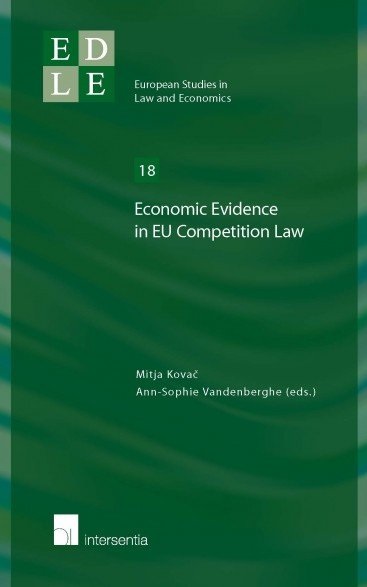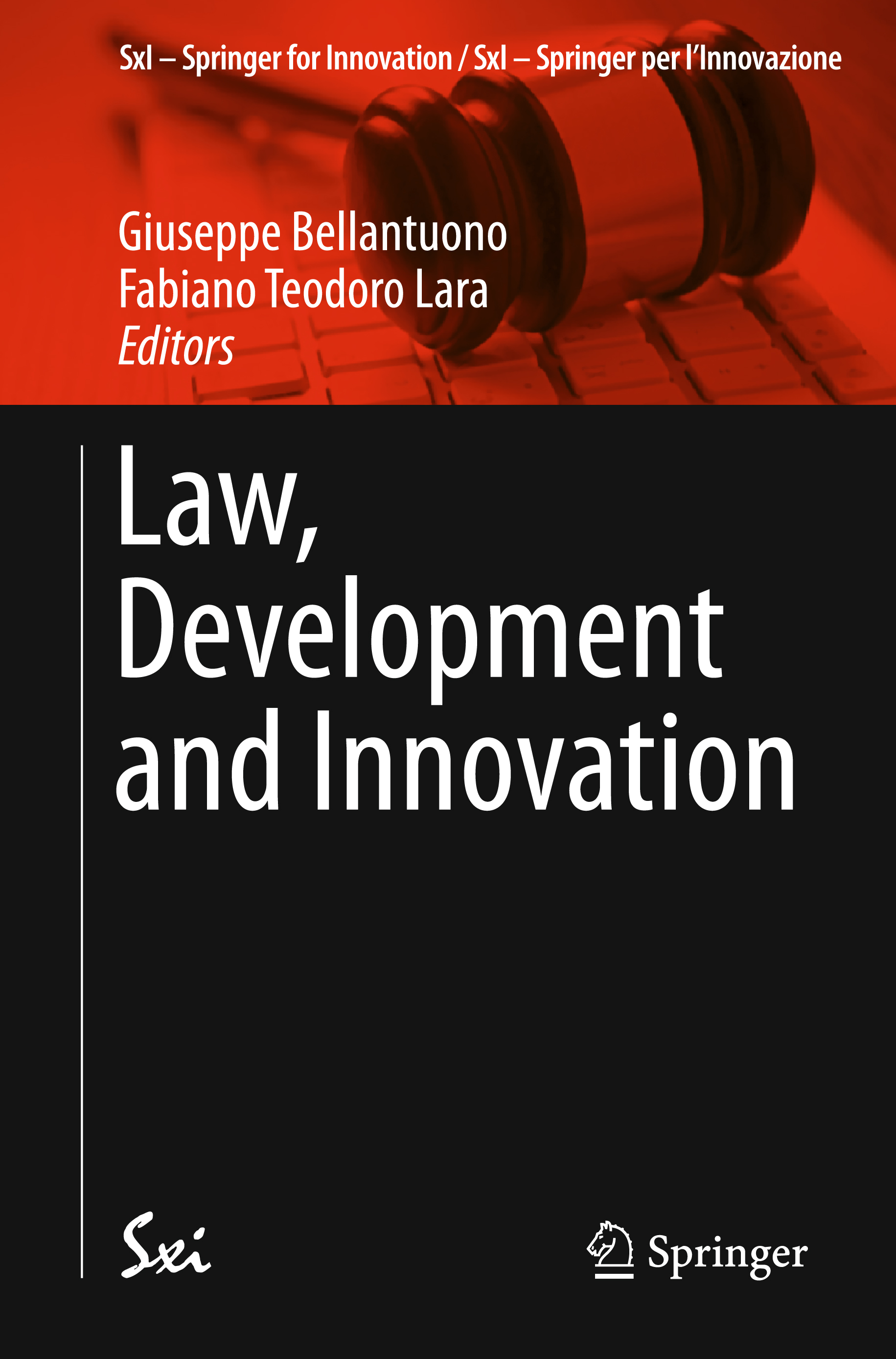Books

Cartel detection and collusion screening: an empirical analysis of the London Metal Exchange
Author:
Dr Danilo Samà (CDC Cartel Damage Claims, Law & Economics LAB)
Abstract:
In order to fight collusive behaviours, the best scenario for competition authorities would be the possibility to analyze detailed information on firms’ costs and prices, being the price-cost margin a robust indicator of market power. However, information on firms’ costs is rarely available. In this context, a fascinating technique to detect data manipulation and rigged prices is offered by an odd phenomenon called Benford’s Law, otherwise known as First-Digit Law, which has been successfully employed to discover the “Libor Scandal” much time before the opening of the cartel settlement procedure. Thus, the main objective of the present paper is to apply a such useful instrument to track the price of the aluminium traded on the London Metal Exchange, following the allegations according to which there would be an aluminium cartel behind. As a result, quick tests such as Benford’s Law can only be helpful to inspect markets where price patterns show signs of collusion. Given the budget constraints to which antitrust watchdogs are commonly subject to, a such price screen could be set up, just exploiting the data available, as warning system to identify cases that require further investigations.
Keywords:
Benford’s law, cartel detection, collusion screening, competition authorities, data manipulation, monopolization, oligopolistic markets, price fixing, variance screen
JEL classification:
C10; D40; L13; L41
Year:
2016
Pages:
203-212
Citation:
Samà, Danilo (2016), Cartel detection and collusion screening: an empirical analysis of the London Metal Exchange, in Kovač, Mitja, Vandenberghe, Ann-Sophie (eds.), Economic evidence in EU competition law, European Studies in Law and Economics, Vol. 18, Intersentia Ltd., Cambridge, United Kingdom, pp. 203-212.
D.O.I.:
10.1017/978-1-780-68740-7.012
[open]

Book title:
Economic evidence in EU competition law
Editors:
Prof. Dr Mitja Kovač, LL.M. (University of Ljubljana, Slovenia)
Prof. Dr Ann-Sophie Vandenberghe (Erasmus University Rotterdam, The Netherlands)
Year:
2016
Series title:
European Studies in Law and Economics
Series volume:
18
Edition:
1st
Publisher:
Intersentia Ltd.
Copyright holder:
Intersentia Ltd.
Pages:
460
D.O.I.:
10.1017/978-1-780-68740-7
[open]
ISBN (print):
978-1-780-68286-0
[open]
Description
The use of economic theory and economic evidence in competition cases, their appropriate interpretation, meaning, impact, usefulness and validity are among the most challenging issues that judges and legal practitioners are facing in their daily decision-making. Notorious questions of, for example, how courts, practitioners and other decision-making bodies should employ economic evidence and what weight (and credibility) should be attached to such evidence where different experts offer different suggestions are among the most complex ones. This book, while addressing such questions, provides tools for judges, scholars and legal practitioners to employ economic evidence in a more effective, optimal and predictable way so as to overcome the identified, EU-wide obstacles in enforcing current EU competition law.
This edited volume addresses the importance, implications, practices, problems and the role of economic evidence in EU competition law. It includes contributions on the use of the economic approach in the application and enforcement of EU competition law in different EU countries, candidate member states and third countries.
The book features scholars who are experts in the field of competition law and economics as well as several of the most prominent European judges who provide first-hand information on the use of economic evidence in practice. The book is not limited to a particular subfield of competition law, but covers the area of competition law at large, including state aid. This reflects the fact that also the European Commission has gradually expanded the application of the economic approach to all areas of competition law.
Reviews
«What role does economics play in cases of competition law? What role could it play? And what role should it play? But do scholarly experts and judges agree on these viewpoints? In this book an impressive variety of topics is covered and surprising insights are gained. Thus it really covers recent and partly controversial developments in the EU regarding the handling of competition law cases on a national as well as an EU level – something experts in the field must not miss».
Prof. Dr Wolfgang Weigel (University of Vienna)
«Economics is the study of scarcity. Law is the study of rights. Unfortunately, law and economics scholarship that is practical and focused on problems from the courtroom is scarce. This volume makes it right. It combines the legal experience of experts and judges in several European countries and the rigor of economics. The result is an indispensable tool for anyone interested in EU competition law».
Prof. Dr Shai Dothan, LL.M. (University of Copenhagen)
«The rapid growth and increasing importance of EU competition law have thrown up, in a context of decentralised interpretation and enforcement, questions of the extent to which economic theory and evidence should be employed by national authorities. This rich collection of essays provides diverse but also fascinating answers to those questions, ranging from the practical and pragmatic to the speculative and theoretical. It is all the more valuable because the authors are drawn from the judiciary as well as the academic world. Clearly the book is essential reading for all concerned with EU competition law».
Prof. Dr Anthony Ogus (University of Manchester and Erasmus University Rotterdam)
Table of contents
[download] [open]
![]()
Chapter
[download] [open]
![]()
Information online
[open]
Is competition policy useful for emerging countries? An empirical analysis
Authors:
Prof. Emeritus Roberto Pardolesi (LUISS “Guido Carli” University of Rome, Law & Economics LAB)
Dr Danilo Samà (CDC Cartel Damage Claims, Law & Economics LAB)
Abstract:
The ultimate objective of the paper is to empirically investigate the effectiveness of competition policy in emerging countries, focusing on broader indicators of market performance in order to understand whether the presence of an antitrust authority has a significant impact, hence an effective utility, on the level of competition of a developing country. From a policy perspective, the aim of the paper is also to assess whether the enforcement of a competition policy regime in a developing country has the same beneficial effects on the intensity of competition usually claimed to take place in the most developed countries. Relying upon a dataset and the connected econometric model developed by one of the authors, we provisionally conclude that in developing countries the institutional quality of the competition authorities matters more than the mere existence or the degree of competence for the effectiveness of a competition policy regime.
Keywords:
competition authorities, competition policy, developing countries, economic development, economic growth, law & economics, market concentration, market efficiency, market performance, new institutional economics, political economy
JEL classification:
C21; C26; K21; L40
Year:
2015
Pages:
25-38
Citation:
Pardolesi, Roberto, Samà, Danilo (2015), Is competition policy useful for emerging countries? An empirical analysis, in Bellantuomo, Giuseppe, de Rezende Lara, Fabiano Teodoro (eds.), Law, development and innovation, SxI - Springer for Innovation \ SxI - Springer per l’Innovazione, Vol. 13, Springer International Publishing, Geneva, Switzerland, pp. 25-38.
D.O.I.:
10.1007/978-3-319-13311-9_3
[open]

Book title:
Law, development and innovation
Editors:
Prof. Dr Giuseppe Bellantuono (University of Trento, Italy)
Prof. Fabiano Teodoro de Rezende Lara (Universidade Federal de Minas Gerais, Brazil)
Year:
2015
Series title:
SxI - Springer for Innovation \ SxI - Springer per l’Innovazione
Series volume:
13
Edition:
1st
Publisher:
Springer International Publishing
Copyright holder:
Springer International Publishing Switzerland
Pages:
222
ISSN (series):
2239-2688
D.O.I.:
10.1007/978-3-319-13311-9
[open]
ISBN (print):
978-3-319-13310-2
[open]
ISBN (electronic):
978-3-319-13311-9
[open]
Description
This book deals with one strand of the intense debate concerning the links between law and development, namely the coordination of innovation processes and legal change. It analyses how innovation, and ultimately development, can be fostered or hindered by existing or new legal infrastructures.
The book includes eleven original contributions from senior and junior scholars and is divided into two parts, the first focusing on theoretical frameworks and the second presenting several case studies on various institutional aspects. A particular strength of this part is its broad geographical coverage, which encompasses the legal frameworks in Europe, the Americas, Africa, and Asia.
The contributions collected in this book will be of value to a broad readership. Academic scholars will find useful information on lessons learned from reforms implemented in different areas and come to better understand the methodological hurdles involved in reform assessment. Policymakers in national and international organizations can draw on these studies when designing new programs. Lastly, practitioners in developed and developing countries can use these contributions to promote the success of current or new initiatives.
Book
[download] [open]
![]()
Book cover
[download] [open]
![]()
Table of contents
[download] [open]
![]()
Chapter
[download] [open]
![]()
Book flyer
[download] [open]
![]()
Information online
[open]
Essays on economic analysis of competition law: theory and practice
Author:
Dr Danilo Samà (LUISS “Guido Carli” University of Rome, Law & Economics LAB)
Abstract:
The Ph.D. dissertation, submitted to LUISS “Guido Carli” University of Rome in fulfillment of the requirements for the Degree of Doctor of Philosophy in Economic Analysis of Competition Law (XXV cycle), is the result of a scientific research in the field of the economic analysis of competition law developed through academic experiences at the Erasmus Rotterdam University in the Netherlands, the Ghent University in Belgium, the University of Hamburg in Germany and the Toulouse School of Economics in France, as well as through professional experiences as competition economist at the Antitrust Department of Pavia & Ansaldo and the Directorate-General for Competition (DG COMP) of the European Commission.
Keywords:
antitrust, competition economics, competition law, competition policy
JEL classification:
B21; C01; K21; L00; L4
Year:
2014
Pages:
1-124
Citation:
Samà, Danilo (2014), Essays on economic analysis of competition law: theory and practice, Law & Economics LAB, LUISS “Guido Carli” University, Rome, Italy, pp. 1-124.

Ph.D. dissertation
[download) [open]
![]()
Ph.D. dissertation defence
[download] [open]
![]()
